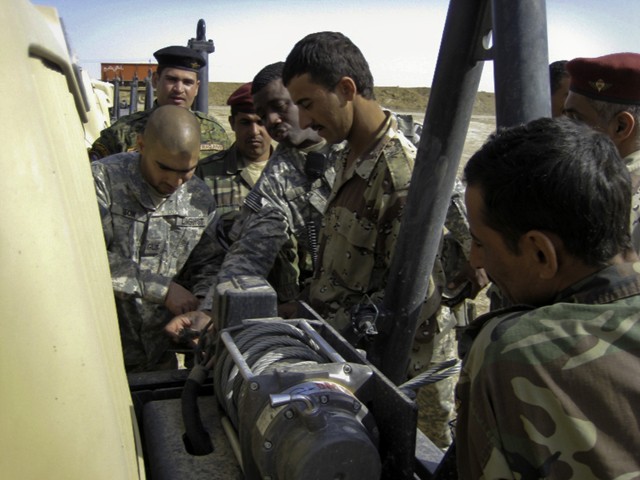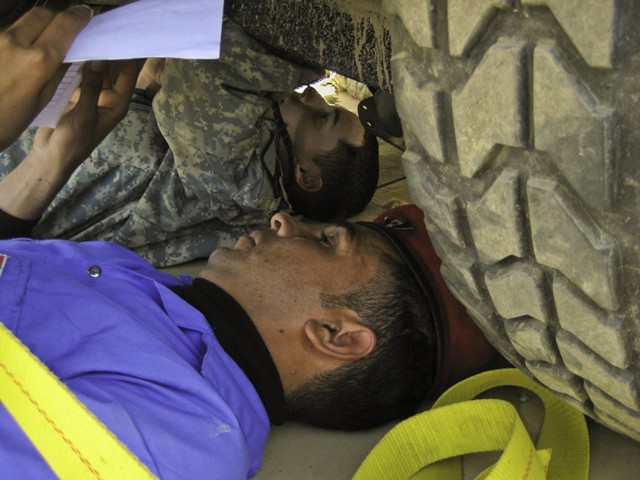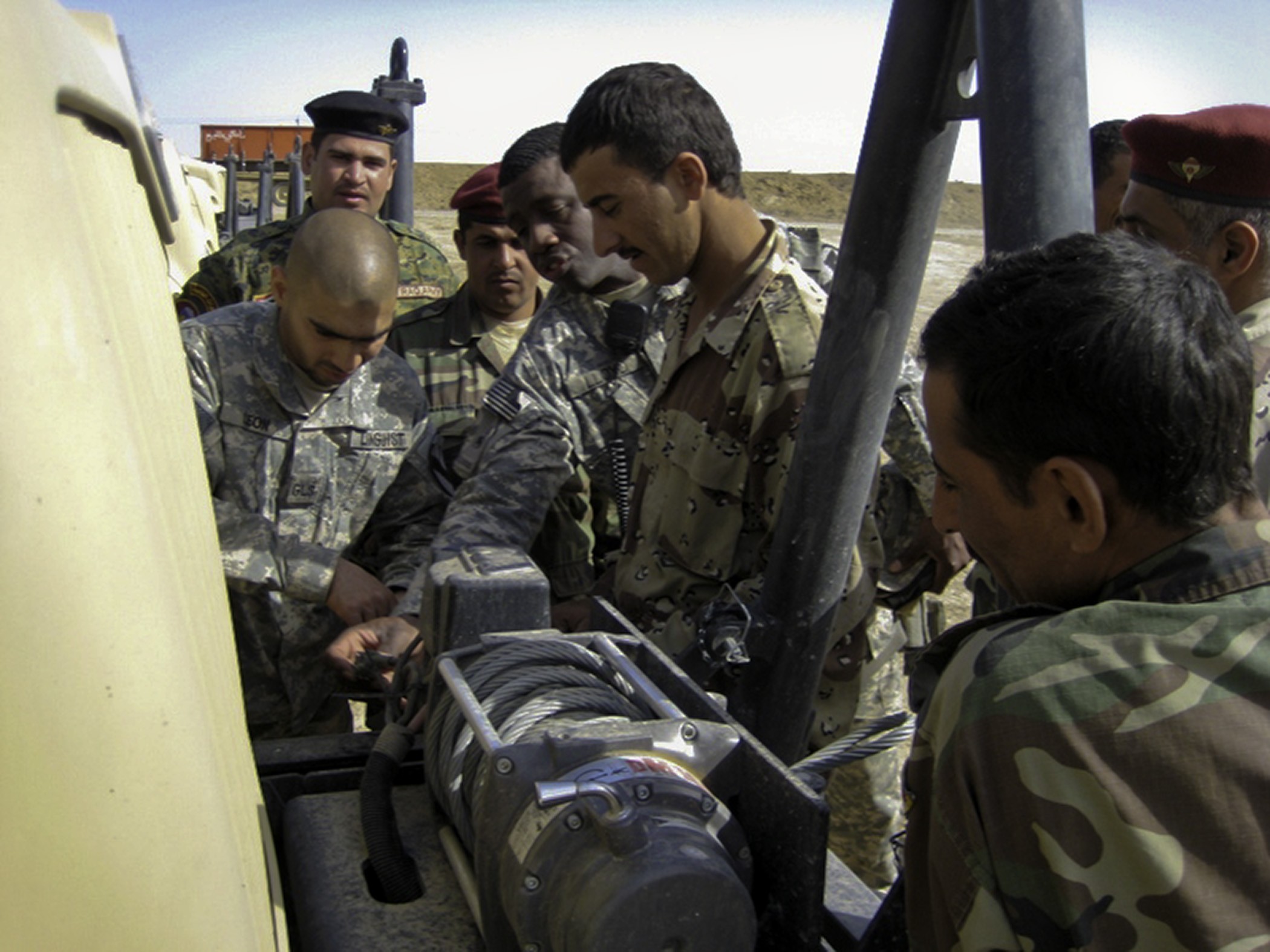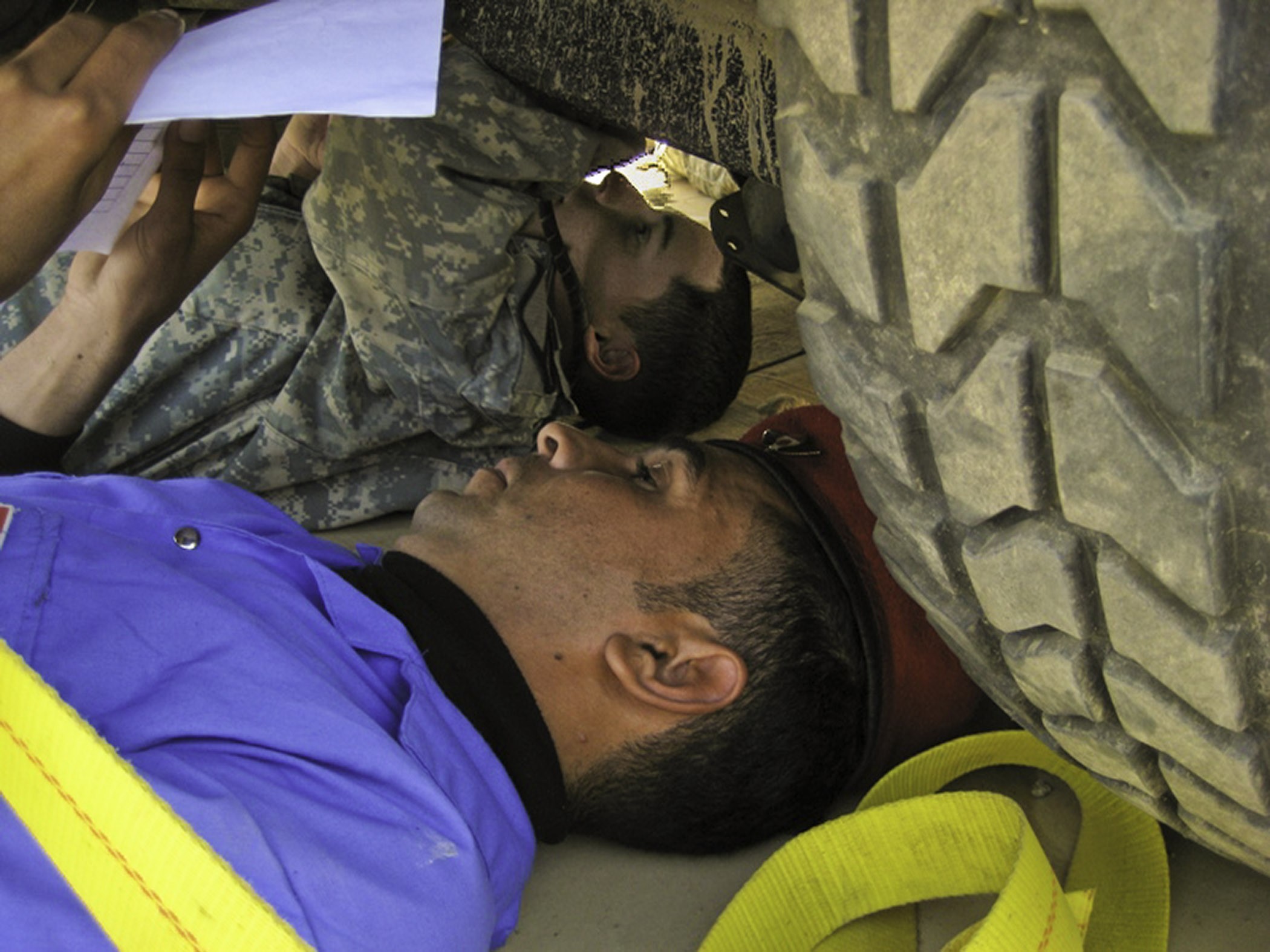FORWARD OPERATING BASE HUNTER, Iraq - One of the biggest challenges the Iraqi Army faces is the shortage of repair parts in its supply system. So Soldiers assigned to the 4th Brigade Combat Team, 1st Cavalry Division "Black Dragons" spent the last two months teaching their Iraqi counterparts the process of preventive maintenance and ordering replacement parts here.
"The key was to develop a training plan that could convey the importance of operator-level preventive maintenance along with higher levels of repairing vehicles and ordering parts," said Maj. David McCulley, 5th Battalion, 82nd Field Artillery Regiment executive officer from Springdale, Ark.
A large portion of the training was focused on repairing the 41st Iraqi Army Brigade's vehicles. The Iraqi and American mechanics also used the time to discuss trouble-shooting techniques, which ensures the Iraqis are ordering the right replacement parts for their vehicles.
Soldiers received hands-on drivers' training, which included how to properly use an operator's manual and properly request necessary repair parts.
The Black Dragon mechanics worked under the guidance of Sgt. 1st Class James Parker, the unit's Iraqi Army maintenance advisor from Urbana, Ohio. Parker and his training team were able to develop a plan to work within the existing Iraqi Army logistics system.
They conducted weekly meetings with each battalion's maintenance officer to discuss the process of requisitioning parts and troubleshooting vehicles.
"Basically, I wanted the maintenance supervisors to understand that if they troubleshoot the vehicles before ordering the parts, it can save them time and resources when it comes to repairing the vehicles," he said. "These mechanics have a lot of knowledge on how to fix the vehicles. They just needed some help identifying the parts with deficiencies."
As the Iraqi Army improves its logistics, it stands even closer to solidifying itself as an independent force.




Social Sharing